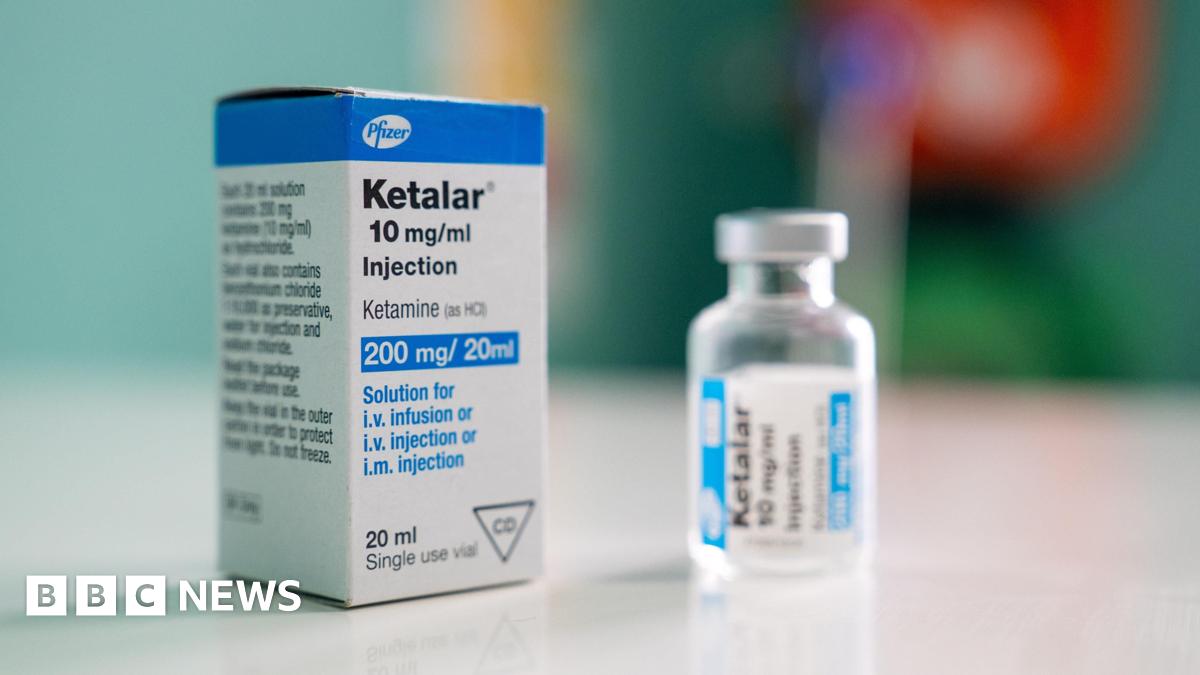Andrew McIntosh: Pioneering Hope for Treatment-Resistant Depression with Ketamine Therapy
In a sterile yet hopeful room at the Royal Edinburgh Hospital, patients sit in reclined chairs, surrounded by soft lighting and calming decor. They are not here for the familiar sounds of traditional therapies; instead, they are poised for an experimental treatment rooted in an old anesthetic: ketamine. Professor Andrew McIntosh, a consultant psychiatrist and professor of psychiatry at the University of Edinburgh, is on a mission to establish a dedicated ketamine clinic by the end of the year, aiming to provide relief to those who endure the darkest corners of depression.
Understanding Treatment-Resistant Depression
For many, the battle against severe depression can feel like an unending cycle of despair, particularly for the 30% of patients who do not respond to conventional antidepressants or therapies. McIntosh emphasizes the urgency of addressing this issue. “Even after taking multiple antidepressants and different treatments, there’s a small number of people who don’t respond well to any of those,” he explained. “Ketamine gives them additional hope, and it’s been shown to be effective.”
The Promise of Ketamine
Unlike the traditional methods such as Electroconvulsive Therapy (ECT), ketamine offers a new avenue for recovery. McIntosh believes it can serve as a vital alternative, especially for those whose lives have been devastated by persistent depression. But what exactly underlies ketamine’s efficacy in treating this mental health crisis?
- Brain Plasticity: Some researchers suggest that ketamine may enhance the brain’s plasticity, allowing it to repair and reshape neural connections that depression may have disrupted.
- Neural Connectivity: Others propose that it alters connectivity between various regions of the brain, possibly alleviating symptoms.
- Unknown Mechanisms: Despite some theories, McIntosh admits, “I think it’s fair to say we don’t fully understand how all the pieces fit together and why it’s effective, although we know it’s very effective.”
Clinical Use Versus Recreational Abuse
The conversation around ketamine often gets skewed, especially given its past as a recreational drug. However, McIntosh delineates a clear difference between the clinical application of ketamine and its illegal usage. “The ketamine that’s given in clinical services will be a very pure form of the drug,” he said. “It will be administered under strictly controlled conditions, ensuring that only the drug itself is present in the preparation. It is vastly different from what people sometimes take recreationally.”
For patients, this distinction is crucial. The therapeutic doses used for depression are much lower than those typically abused for recreational purposes, significantly minimizing risks. “The dose given for depression is far, far lower,” McIntosh asserted, “so we believe the risks are much, much lower than when it’s taken in the community.”
The Scientific Landscape
The growing interest in ketamine therapy is supported by a wave of research. A study published last year in the “Journal of Clinical Psychiatry” noted that 70% of treatment-resistant patients reported significant improvement within hours of receiving ketamine infusions. Another meta-analysis from 2022 revealed that patients experienced a decrease in depressive symptoms within 24 hours, a stark contrast to the weeks or months it may take traditional antidepressants to exert their influence.
Such findings have caught the attention of mental health professionals globally. Dr. Emma Keller, a psychiatrist based in London, stated, “McIntosh’s initiative to bring ketamine therapy to Scotland is a vital step forward. It demonstrates a more nuanced understanding of depression and the need for innovative treatment modalities.”
A Hopeful Future
As McIntosh prepares to launch the ketamine clinic, he envisions a brighter future for patients grappling with conditions that traditional treatments have failed to ameliorate. He acknowledges the broader implications of this therapeutic approach, stating, “It’s not just about medication; it’s about offering patients a glimmer of hope when they feel all avenues have been exhausted.”
In a landscape where mental health crises deepen and the need for effective treatments becomes more urgent, McIntosh’s aspirations for the ketamine clinic represent more than just a medical achievement—they symbolize a compassionate commitment to understanding and treating those who suffer in silence. The journey of these patients, many of whom have been relegated to the shadows of ineffectual treatments, is set to take a transformative turn. With innovative therapies on the horizon, the prospect of renewed hope is indeed within reach.
Source: www.bbc.co.uk


